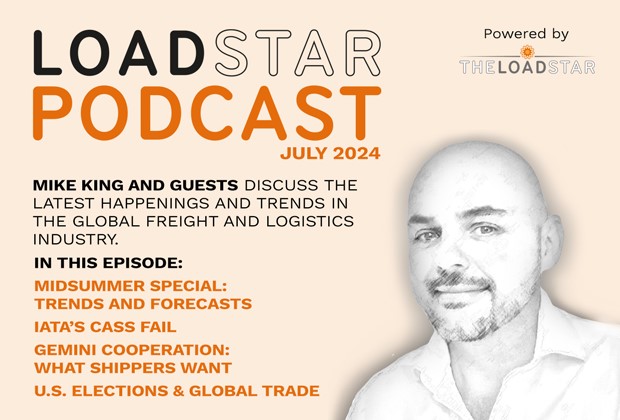Puerto Rico set to achieve life science export potential
Air trade demand from Puerto Rico (PR) to mainland US reflects its growing life science ...
TFII: SOLID AS USUALMAERSK: WEAKENINGF: FALLING OFF A CLIFFAAPL: 'BOTTLENECK IN MAINLAND CHINA'AAPL: CHINA TRENDSDHL: GROWTH CAPEXR: ANOTHER SOLID DELIVERYMFT: HERE COMES THE FALLDSV: LOOK AT SCHENKER PERFORMANCEUPS: A WAVE OF DOWNGRADES DSV: BARGAIN BINKNX: EARNINGS OUTODFL: RISING AND FALLING AND THEN RISING
TFII: SOLID AS USUALMAERSK: WEAKENINGF: FALLING OFF A CLIFFAAPL: 'BOTTLENECK IN MAINLAND CHINA'AAPL: CHINA TRENDSDHL: GROWTH CAPEXR: ANOTHER SOLID DELIVERYMFT: HERE COMES THE FALLDSV: LOOK AT SCHENKER PERFORMANCEUPS: A WAVE OF DOWNGRADES DSV: BARGAIN BINKNX: EARNINGS OUTODFL: RISING AND FALLING AND THEN RISING

The vast amounts of investment and research that logistics companies are putting into the pharmaceutical shipment business could soon be at least partly defunct following the first approval of 3D-printed drugs. Developed by Aprecia, the approved drug is to help control epilepsy and the 3D print process allows for a new, easy-to-dissolve structure as well as individual dosage control. This allows personalised medicine to be easily manufactured, delivered and stored. Will all that pharma cold chain expertise be wasted? Time will tell.
Crew member dies as Maersk Frankfurt catches fire on maiden voyage
Maersk Frankfurt owner declares General Average, as fire-fighting continues
More danger to box ships as Houthis expand Red Sea attack arena
Bangladesh 'jam-packed' with cargo as curfew and internet restrictions continue
K+N eyes more cost-cutting after first-half profit and market share declines
'Last chance' for US importers to stock up before possible east coast port strike
New FMC regulation rules out carrier 'lame excuses' for rolling cargo
Maersk Frankfurt heads for open water as container fire subsides



Comment on this article